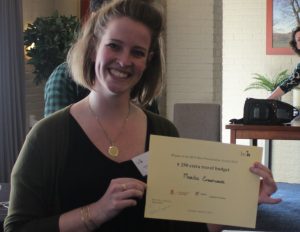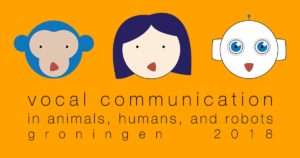Program:
- 10:00 Opening remarks
- 10:10 Dr. Monita Chatterjee, Boystown National Research Hospital, USA, “Cochlear implants: adaptation and plasticity in voice pitch, emotional prosody and lexical tones.”
- 11:00 Prof. Hartmut Meister, University of Cologne, Germany, “Voice and speech perception in cochlear implant recipients”
- 11:50 Coffee Break
- 12:00 drs. Nawal El Boghdady, RUG/UMCG, Netherlands, “On the Color of Voices: the relationship between speech-on-speech and voice perception in cochlear implant users”
Date: 25 June 2019, TUESDAY
Time: 10:00 hr
Location: Panoramazaal, UMCG
Organizer: Drs. Nawal El Boghdady
Link for broadcasting: https://tinyurl.com/25-06-19-AudSeminar
 Deniz is elected to be a member of the
Deniz is elected to be a member of the 
 ‘Vocal Communication’ Workshop (VoCoGro), will take place on Monday, October 29, 2018 at the UMCG. The workshop will serve as a kick-off event for Deniz’s VICI grant, “It takes two to communicate: Voice perception and linguistic content,” and Terrin’s VENI grant, “
‘Vocal Communication’ Workshop (VoCoGro), will take place on Monday, October 29, 2018 at the UMCG. The workshop will serve as a kick-off event for Deniz’s VICI grant, “It takes two to communicate: Voice perception and linguistic content,” and Terrin’s VENI grant, “